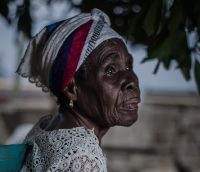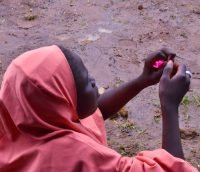One of the best things about Africa is how diverse the people, cultures and traditions, food, clothing, values and beliefs, and what makes us African is. From the horn of Africa to the swamps of the Niger delta, we are as different a people as the topography of our regions are. Despite our difference, it is safe to say that we are the most beautiful people on the planet!
That been said, it is sad that many of us never bother to learn about our differences and the interconnecting things that unite us. Even more, as European, Middle Eastern and American cultures diffuse into ours, we seem to have the perfect excuse to be far removed from our heritage.
I am guilty of this.
My father is an Idoma man from Otukpo in Benue State, Nigeria. My mum is Ebira, from the town called Okene in Kogi State. When asked what tribe I am, I usually just say I am a Nigerian. As expected, I am usually asked again what tribe in Nigeria I am from. Again, I respond with the ‘I am a Nigerian and that is all that matters’ line. I know it is an ideological stand point but I have seen the effects of fixating on tribe rather than people in Nigeria. So I refused to be identified by my tribe. I have been to my father’s village once and only passed through my mother’s village on many road trips to the Southern part of the country. I also cannot speak either of their languages. To be fair, I understand my mother’s language but cannot speak it properly while I am completely hopeless when it comes to my father’s language. We all spoke the English language (and Pidgin English when our parents were not around) and that was fine by me.
I grew up on American television and for the longest time, I wanted to live, eat, dress and talk like an American. I rarely wore African or African themed clothes. And though Nigeria’s English is based off our colonizers – the British – I always spoke with the twang of the American.
A little over five years ago, I started to get more attune to the beauty of our continent. As I learned more about the people of Africa, my appetite for even more knowledge increased. I wanted to know why we acted the way we did, what informed our choice of clothing, how many trials we had to go through before perfecting thatcultural dish, what rules applied to men and women, how children learned values, what triggered wars, how diseases were treated, how wealth was distributed, the gods! Oh the gods!
I wanted to know it all.
But…history books can be so long (and sometimes so painful to read) and the thought of going through a million history books was not something I relished at all. I wanted an education and I wanted it quickly.
So…a thought crossed my mind. Why don’t I ask people to teach me about their cultures and traditions in small bites?! As the thought developed in my mind, I remembered something I used to watch a lot on an East African channel – I think it was eTV – where they did these one minute videos that started with ‘Did you know…’ and proceeded to share little information about various aspects of East African cultures and traditions. I used to LOVE those nuggets! And I felt that I could do that too!
For almost a year, I have been sitting on this idea because I want the delivery to be perfect, to be awesome and to be eye catching. I spent so much time worrying about the package that I forgot to just focus on the content. If anything, eTV just had the written content on their screens and it was a hit. So I didn’t need to waste all this time figuring out what I wanted the content to look like rather than what the content was about.
Anyhoo, I stopped worrying about it and decided to just do it!
So today, I am super excited to announce the newest thing on Shades of Us. I am calling this one…Quick-E.
Quick-E is short for ‘Quick Education’ and they are a series of one minute videos looking at various aspects of African cultures and traditions. These videos will help us understand a little bit about our African brothers and sisters and their heritage. What I hope to achieve with this is that, by educating us on simple things that makes us the way we are, we can learn to tolerate and understand each other in the promotion of a united African people and sustainable peace in our communities.
Now, this is not something I want to do alone. I want you and me to be part of this project. ‘How do you come in?’ may be your next question, to which I will scream in delight and give you a virtual hug. But, on a serious note though, I want you to be a part of this project by sending me a request to do a video about your tribe. An example could be, ‘Hey Ramat! I absolutely love Quick-E and learned so much from the last couple of videos. I am an Idoma person and I would love you too do a video about our food. Our traditional soup is called Okoho and we usually eat it with any ‘swallow’ which we call Ona. I will be excited to see my request accepted. Thanks boo!’
When I get a request like this, I will immediately do a research and put together a video that is like the first edition that I have attached in this post. Exciting, yeah? I know I am excited and I am super eager to learn from all of you. PLEASE be a part of this really awesome thing and let us get to know about our heritage! (PS: I will mention everyone who sends me a request on the video.)
You can make a request by contacting me via any of these social media platforms:
Email: shadesofusafrica@gmail.com
Phone (SMS or Whatsapp): +2349059127552
Or you can send us a direct message via any of our social media platforms:
Facebook: Shades of Us
LinkedIn: Shades of Us
Instagram: @shadesofusmedia
Google+: Shades of Us Media
Tumblr: shadesofusworld
So…welcome to the first episode of Quick-E on Shades of Us. I can’t wait to hear what you think about this! Whoot whoot!
Ramatu Ada Ochekliye
Founder,
Shades of Us






